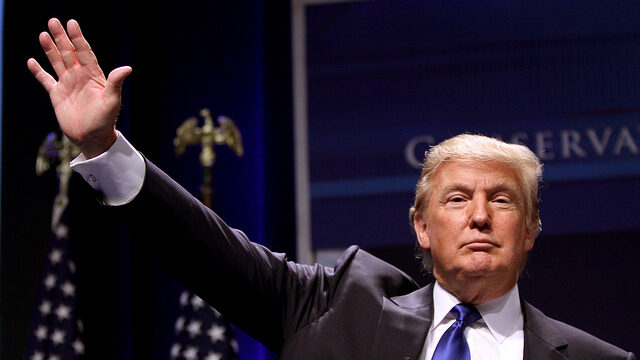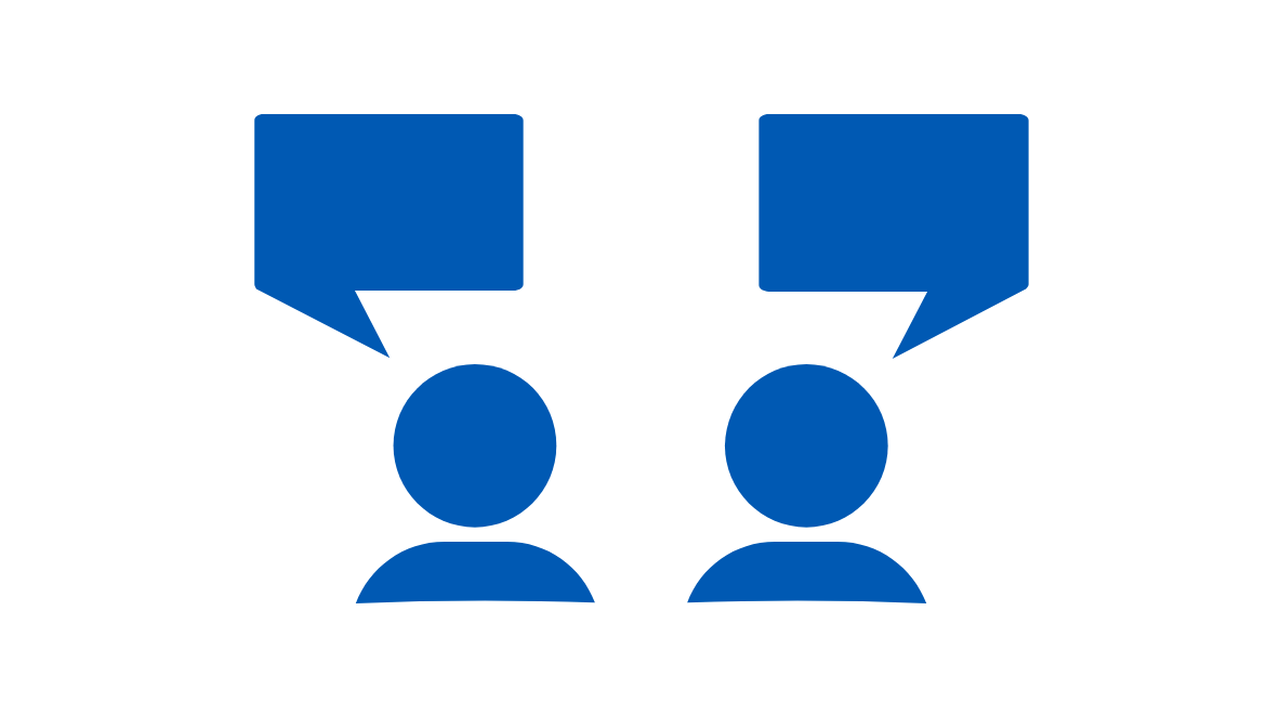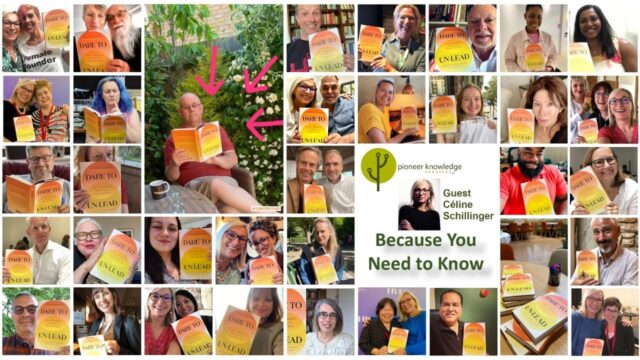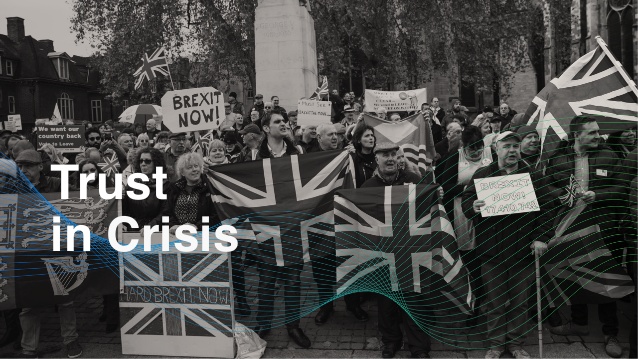
Trust in crisis: the fourth turning begins
Published twenty years ago, William Strauss and Neil Howe’s book The Fourth Turning identified three distinct eras, or “turnings”, over the past 500 years, with a fourth in the making.
The first turning, called High, was characterised by expansion and confidence. Then came Awakening, when society looked at what had been created and challenged the then-established order. Institutions then weaken in Unravelling, with Strauss and Howe predicted would be followed by Crisis, when institutions collapse and are rebuilt to save nations. They said America was on the brink of this fourth turning, where society would pass “through a great and perilous gate”.
The results of two recent surveys are showing that Strauss and Howe’s predictions in The Fourth Turning were right on the mark.
What worries the world
The first is the Ipsos What Worries the World1 survey, the results of which were released towards the end of last year. As shown in Figure 1:
This global study finds that, overall, people across all countries are more likely to think things in their country are off on the wrong track (63%), than headed in the right direction (37%.).
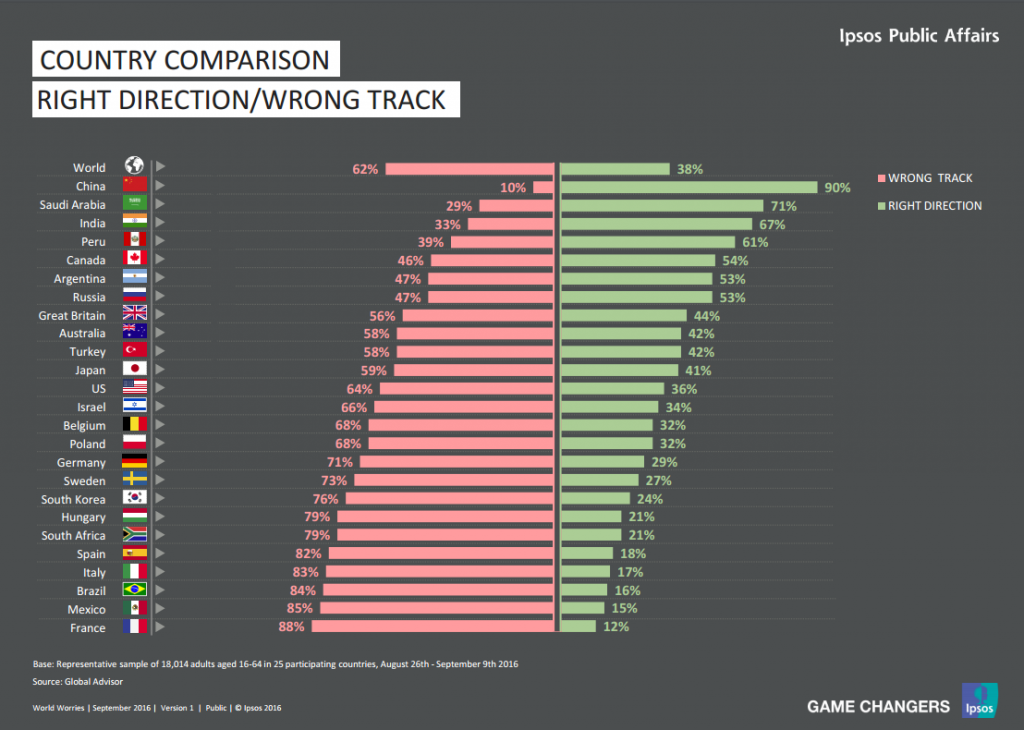
Trust in crisis
Now comes the results of the latest Edelman survey of trust. Edelman has conducted a detailed tracking survey of trust over the past 17 years, measuring trust in four institutions (government, NGOs, business and media) as well as examining who and what kinds of information we trust.
As shown in this presentation2:
It is no surprise the Trust Barometer shows 21 of the 28 countries we survey now distrust their institutions. There is a rejection of those in authority in favor of ordinary people, family members and friends.
But what is most alarming is the viral nature of distrust. Over the past five years we have seen the tide of distrust rise, first covering the mass population, then the middle classes. As of 2017, it is lapping at the feet even of the rich, who escaped austerity.
With the people, not for the people
In response to this alarming and growing crisis in trust, Edelman proposes that society makes a fundamental shift from the old model of “for the people” to a new model of “with the people”, as shown in Figures 2 and 3.
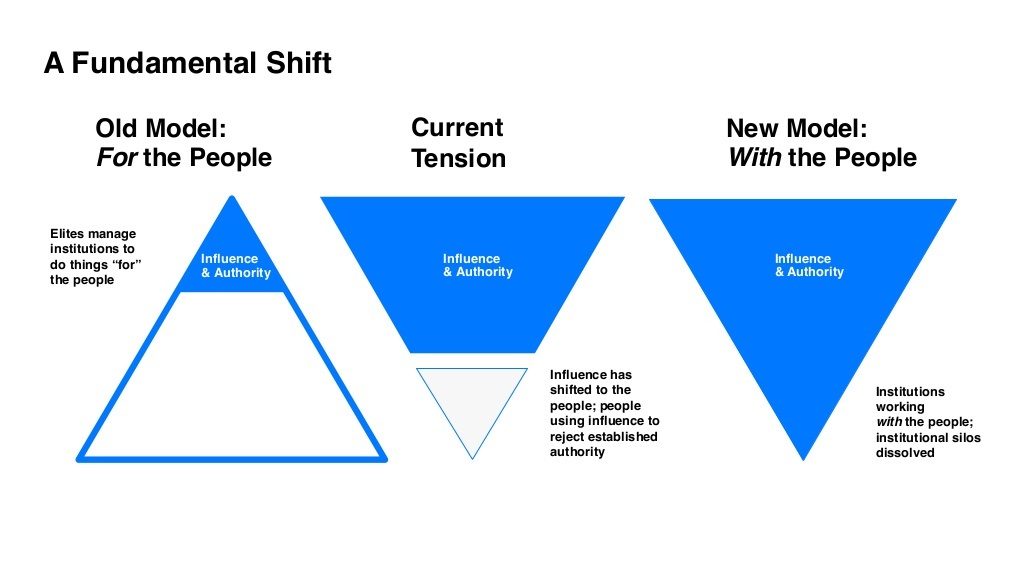
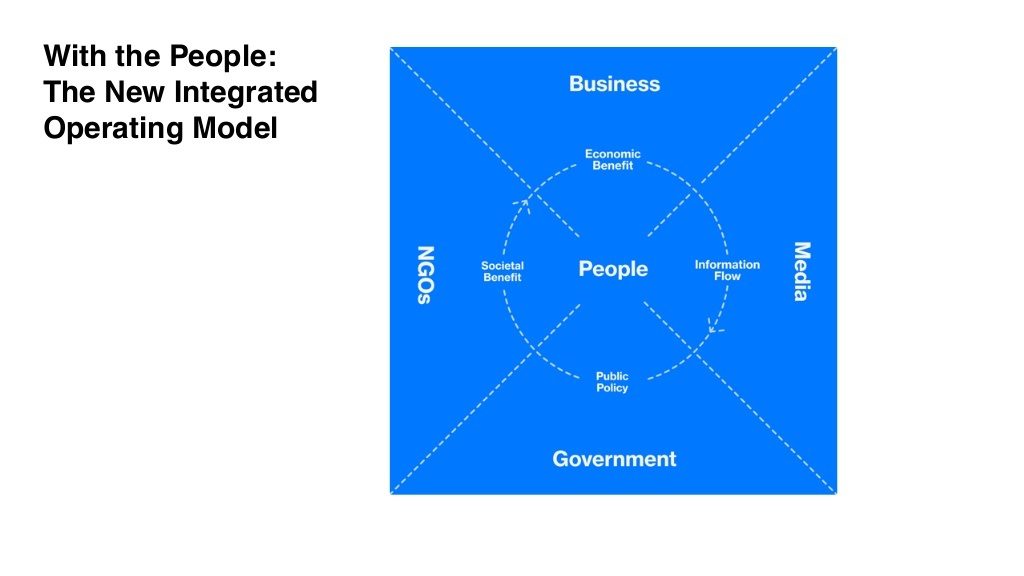
Edelman’s proposal very much parallels Dave Snowden’s empathy initiative, which I discuss in this article.
Is your knowledge of the world really upside down?
As well as clearly illustrating a growing global crisis in trust, both surveys include a stark result that will come as a surprise to many living in western countries. This is that two countries notably bucking the trend in both surveys are China and India.
As shown in Figure 1, an overwhelming majority (90%) of respondents in the Ipsos survey believe that China and its government are on the right track, in stark contrast to respondents in countries like the United States and Australia. The proportion of respondents in India who think their country is on the right track is also very high.
Similarly, as shown in Figure 4, levels of trust in China and India are very high, in stark contrast to countries like the United States and Australia.
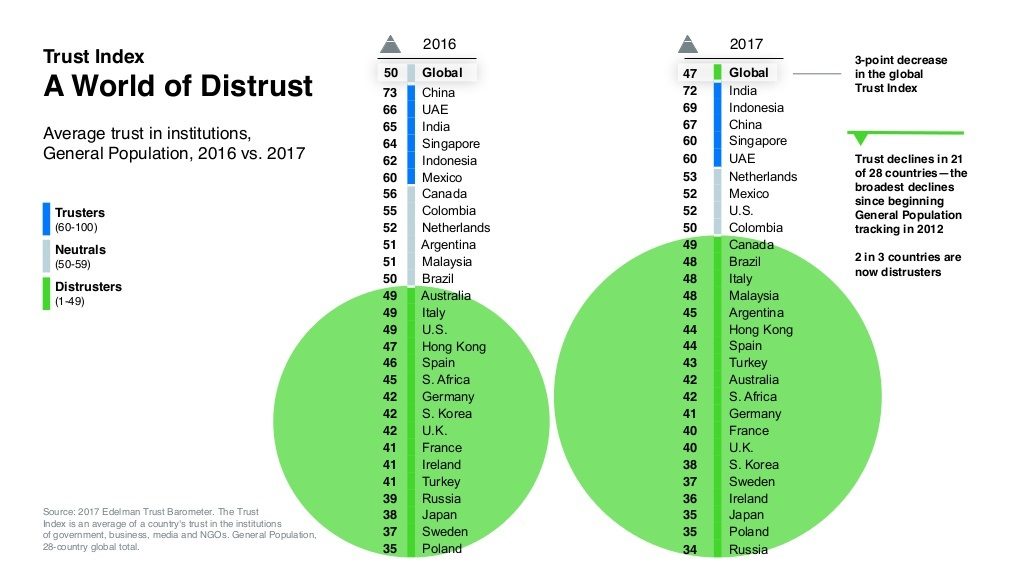
China and India and their governments are often portrayed negatively in the western media, but the citizens in both countries are much happier with the directions being taken by institutions their countries (government, NGOs, business and media) than are the citizens of western countries.
This raises some significant questions: Is the western view of the world actually the complete inverse of reality, and is this a big contributor to the problems being faced by the world today?
References:
Also published on Medium.

